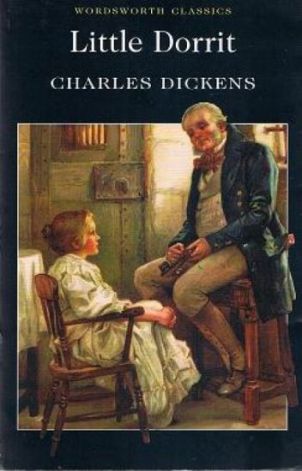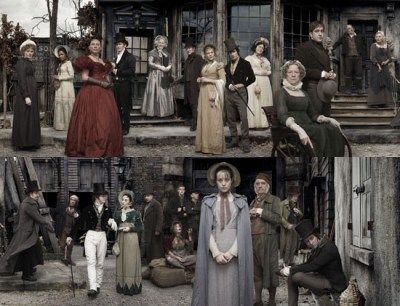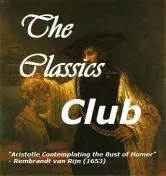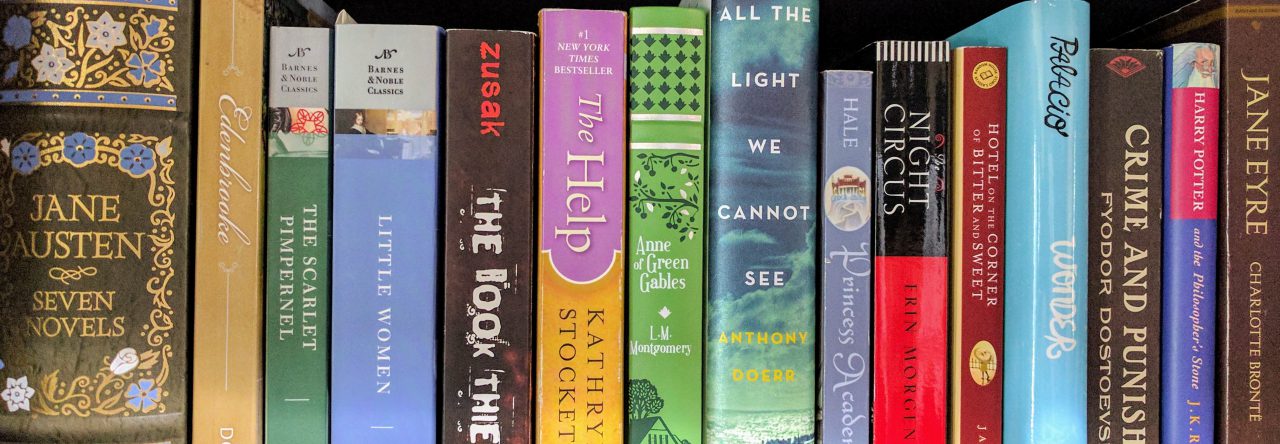Hi y’all!
I am thrilled to be (finally) sharing my full review of Little Dorrit by Charles Dickens. If you recall, this is my “big” classic for the year (just under 1000 pages), and I was surprised how quickly I was able to finish it. My shorter reviews of the different sections of the novel can be found here: part 1, part 2, parts 3 & 4.
I have wanted to read this novel for years and I am so glad I finally did! This novel showcases Dickens at his best. He develops characters of all sorts, creates a setting and plot that surprises and excites readers, and offers commentary on the problems with how society treats and seeks to help the poor. This novel is truly Dickensian.
Initial Thoughts on the full novel:
- The story pulled me in, but what kept me engaged were the characters. I felt invested in the characters and their futures through the ending. Dickens is a master storyteller but he also creates such powerful characters that drive the story forward.
- Little Dorrit is a favorite character of mine in this novel and in all of classic literature. Her journey through the novel is profound and I love her for how strong and loyal she is.
- We finished the BBC adaptation is just about a week. And I loved the way it portrays the novel. Although, I was surprised that some of the scenes/characters that were not true to the book bothered me a bit. (ie: Arthur never finds out about his true mother!) It was still a lot of fun to watch especially with my husband.
- I am really glad that I read my big classics for The Classics Club in this order because I think I read the hardest one first (War and Peace). After that masterpiece and Les Miserables–both of while are rather verbose at times–I think even Dickens seems concise in his writing 😉

Little Dorrit by Charles Dickens tells the complex story of the Dorrit family and their interactions with London society while in prison and when released. Goodreads summarizes, “A novel of serendipity, of fortunes won and lost, and of the spectre of imprisonment that hangs over all aspects of Victorian society . . . . When Arthur Clennam returns to England after many years abroad, he takes a kindly interest in Amy Dorrit, his mother’s seamstress, and in the affairs of Amy’s father, William Dorrit, a man of shabby grandeur, long imprisoned for debt in Marshalsea prison. As Arthur soon discovers, the dark shadow of the prison stretches far beyond its walls to affect the lives of many, from the kindly Mr Panks, the reluctant rent-collector of Bleeding Heart Yard, and the tipsily garrulous Flora Finching, to Merdle, an unscrupulous financier, and the bureaucratic Barnacles in the Circumlocution Office. A masterly evocation of the state and psychology of imprisonment, Little Dorrit is one of the supreme works of Dickens’s maturity.”
As with my reviews of my other long classics, I thought I would share some of my favorites.
Favorite Characters:
- Amy Dorrit. There is just something about Amy that makes her easy to love and cheer for. I admired her devotion to her father and siblings. I admired her strength and work ethic to help them and overcome grief and pain. And most of all I admired the way she embraced life where she was. She didn’t aspire to live beyond the Marshalsea but she was willing to go when the opportunity came. The ending scenes with Arthur are so rewarding for such a kind, generous person.
- Arthur Clennam. I never thought of Arthur as nearly 40 years old. But there were definitely moments when his wisdom and experience shone through. I was impressed by his loyalty towards his mother despite a difficult childhood. And I was even more impressed how he moved forward in his life with his partnership in Doyce and Clennam and connections in the Bleeding Heart Yard. His integrity and honor are both worth emulating.
- I think Mr Pancks is one of the most intriguing characters in this whole novel. Without him, we don’t get much action or many answers. He drives the plot to find Mr Dorrit his fortune and he pushes Clennam to invest in Mr Merdle’s bank. But beyond the big plot twists, he is also just interesting to watch. He notices details. He puts on different identities in different situations. But he is good and seeking truth throughout. I also loved how he is portrayed in the BBC adaptation.
- Flora and Mr Meagles are the two characters that made me laugh the most. I absolutely love Flora and how ridiculously talkative she is. Her constant, roaming chatter is hilarious! I love how she can’t remember not to call Arthur by his first name so she calls him “Doyce and Clennam” and I love how sincerely she tries to help him and those he loves. She may be a bit dense but she means so well. Mr Meagles was in a unique position in society where he could say what he thought more often than those of the aristocracy. He’s an emotional man getting riled up about injustice and staying calm when asking Tattycoram to “count to 5 and 20.” My heart breaks for him when Pet marries. And I still don’t understand what she sees in her husband.
- Frederick Dorrit and John Chivery were two of the most endearing characters. Perhaps because they both stand by Little Dorrit herself throughout the novel. Frederick is so loyal to his family and I especially loved how he defends Amy once the family’s fortune changes. John is such a sweetheart. I love his rewritten epitaphs for himself. His love for Amy is so pure and genuine. His help towards Arthur at the end of the novel is so beautiful. I admire young John. Perhaps in another life, he and Amy would have been together.
Favorite Scenes:
- The first time Arthur comes to the Marshalsea to see Mr Dorrit is such a brilliantly described scene. The way the characters interact is stunning from the introductions to the testimonial. The fact that Arthur gets locked in makes it even more memorable. What a strange hierarchy resides in the Marshal
- The change of the Dorrit family’s fortune and Mr Dorrit’s release from prison is another favorite moment. It’s so unexpected yet intriguing to see how each member of the family reacts to the news. The hierarchy of the prison continues outside of it. My heart aches for Amy and her desire to live like they used to.
- The Dorrit family’s experiences in Italy are compelling and complex. I enjoyed the relationship built between Amy and Pet. And I laughed at Mr Sparkler’s pursuit and marriage to Fanny. But the most compelling (while also the most sad) scenes were when Mr Dorrit returns to Italy after visiting London and the past and present collide in his mind making it difficult to distinguish between them.
- The ending when Arthur and Amy discover they just have each other is flawless. I love that the story comes full circle. Home becomes home again. And the prisons of mind and body are at last escaped for good. Dickens isn’t a romance writer like Jane Austen but I was impressed by the sweet love story that blossomed among the thorns of this story.
Most Thought Provoking Characters:
- William Dorrit is absolutely fascinating because he always maintains his importance in the hierarchy of his surroundings. When he’s in the Marshalsea, he is important and when he is out, he seeks to establish himself as important. He is nearly obsessed with title and public opinion. Which also leads to his downfall in the end. He is a fascinating glimpse at the power of identity, truth, persona, class and fear.
- Mr. Merdle is fascinating for an entirely different reason: he seems to gain prominence without trying and doesn’t want it. For the whole novel, he seems uncomfortable, even confused. His end is a tragedy but the most compelling part is the way he sways the public. When he is doing well, everyone sings his praises, but when things go wrong, everyone suffers–especially the poor. A discussion of his character must include the ideas of wealth, ruin, and reputation.
- Blandois is terrifying, unnerving, and intriguing all at once. He seems to live under his own set of moral laws. It is difficult to uncover his motives and how far he is willing to go to get what he wants. He seems to embody complexities in identity, morality, and power.
- Mrs. Clennam is fascinating because she refuses to be wrong. She claims stalwart religious beliefs which seem a bit twisted as the story reveals itself. He determination to be correct and to keep her secrets buried is intriguing. A discussion of her character must include the ideas of secrets, religion, truth, and emotion.
Favorite Philosophical Questions:
- Prisons–both physical and mental. How are they created? What is the relationship between the prison in ones mind and a physical prison? Which is more confining?
- How should the poor and needy be helped? The circumlocution office is a clear sarcastic nod to the ways government help the poor. Dicken’s social commentary is pointed and intense in this novel.
- How is a reputation created, maintained, and/or changed? Some characters are nearly obsessive about reputation like Fanny and Mr Dorrit. While others are more focused on being themselves like Amy and Arthur.
- What is reality? How do we define what reality is? Mr Dorrit’s interactions with others at the Marshalsea and as a wealthy gentleman are compelling in connection with this idea of reality.
- How does one discover truth? Is it important to know the truth? Mrs Clennam goes to great lengths to keep Arthur from the big secret at the center of their family. While Mr Blandois seeks to uncover the truth for a price.
Prisons, both physical and mental, are seen through this novel.
There is the obvious Marshalsea Debtors Prison which centers the novel. While several characters spend time there, their ways of coping with life in a cage are striking. Identity and meaning seem to change within those walls. However, many characters are held prisoner in their minds. The reasons vary, but most seem overwhelmed by how society views them and how to keep their secrets hidden.

The complexity of the plot and the way the stories all end is absolutely brilliant.
There are so many characters in this novel. I could have said more about another 10 of them including Mr Flintwinch, Affery, Miss Cole, Tattycoram, Mrs General, Fanny and Mr Sparkler, Maggy, the Plornish family, and . The list goes on and on! What is truly impressive is how these characters all play a role in the larger story. The climax brings them all together and intertwines their destinies. This novel is very Dickensian in the way all the loose ends are tied up at the end in a flourish (which makes finishing the novel easier because it’s so plot driven at the end).
This is truly a masterpiece. I aspire to read more Dickens because I’ve read this one.





This novel is my 25th finished on my list for The Classics Club! I’m halfway through my list! Check out my full list here. For more info on the club, click here.













Pingback: Books to Read if you love North and South – greenish bookshelf
Pingback: 8 Books to read set in London – greenish bookshelf
I read this last year and loved it too! I neglected to write my review and this one is on my CC list. Dickens is an incredible story teller and the characters are just always so unique. Loved your review, felt like someone was telling me about mutual friends.
LikeLiked by 1 person
That’s awesome! Thanks so much for reading my review. I agree, every time I read Dickens, I am impressed by his storytelling and characters.
LikeLiked by 1 person
Pingback: Book Goals 2019! – greenish bookshelf
Pingback: Reading Reflection 2018! – greenish bookshelf
Pingback: July Wrap Up and August TBR – greenish bookshelf
Well done for getting half way through your list. Especially ticking off a few big chunksters you!
I’m halfway through a year long Les Mis readalong which has been a great way to read such a verbose story.
Maybe Little Dorrit will be 2019 read?
LikeLiked by 1 person
Thank you!! It feels awesome to accomplish this first half. And I’m still loving it–sometimes I think about my next list. Haha!
That’s awesome you’re doing a Les Mis readalong. I bet that helps a ton. It was hard to read that on my own. It took me almost everyday of a full year 😉 But it’s absolutely incredible! What are your favorite parts so far?
You should totally read LD! I’d love to hear your thoughts!
LikeLiked by 1 person
Great review! The thought of another long Dickens novel has been so daunting ever since it took me an entire year to read Bleak House, but your post has given me some much-needed inspiration! 🙂 Is LD your favorite Dickens?
(Not to say Bleak House isn’t great, because it definitely is. And there’s a wonderful miniseries, just like w/ LD, so highly recommended if you haven’t already read it!)
LikeLiked by 1 person
Thank you!!
Bleak House is definitely a book I hope to read someday! I limit my big classics to one a year because it feels more doable. Ha!
I’m kind of a Dickens newbie– I want to read more of his books! I have seen just one episode of the Bleak House miniseries. But I should check out the rest and hopefully read it in the next few years! I appreciate your recommendation 🙂
LikeLiked by 1 person
I have followed all of your posts on Little Dorritt. This entry is so comprehensive. Thank you.
I remember reading LD in college. I had no idea how long it was before I began, I recall spending an entire Sunday reading and making headway, barely coming up for air. It may be time for me to reread at a more leisurely pace. You have made me consider this because of your excellent writing on the novel.
LikeLiked by 1 person
Thank you so much, Joyce! I appreciate you reading my posts 🙂
I hope you find time for a leisurely reread soon 🙂
LikeLike
I am currently reading Nicholas Nickleby, which I started in May. Now that I am graduated from May, I can pace myself better and not have to finish by the beginning of the school so I can set my overall deadline to a later deadline. I set my deadline for end of September even though I bet I finish before then. So I am in the middle of a Dickens novel. Every summer, I always find myself reading a novel.
Charles Dickens is one of my favorite authors. My first story I learned to love of his was A Christmas Carol. I also learned to love A Tale of Two Cities, Great Expectations and Oliver Twist. As of now, I may not be done with Nicholas Nickleby, but I do love the book.
LikeLiked by 1 person
That’s awesome! Congrats on graduating! I love that post graduation all my reading has been on my own timeline. Plus you can read what you want 😉
Glad to hear you’re enjoying Nicholas Nickleby! I haven’t read that one. But I have read (and love) A Christmas Carol. And I read Great Expectations in high school. A Tale of Two Cities and Oliver Twist are both on my classics club list so I hope to read them in the next few years!
LikeLike
Previously, I have chosen to read during summer and Christmas break: those have been the classics, so in those times I have challenged myself to try and finish them in a limited amount of time and guess what finished each of them in that small time frame.
Great Expectations and Hunchback of Notre Dame were ones that I attempted to finish in just one Christmas Break and I finished those in that time frame. The same Christmas Break I read Hunchback, I attempted Christmas Carol since that Christmas Carol was so short.
Don Quixote, Oliver Twist, and Les Misérables- those were summer break and I finished them in one summer break. Les Misérables may have been over 1000 pages, but the musical is what made me pull through and finish it in one break.
So glad I can read at my own pace now. Want to attempt to read both Great Expectations and Tale of Two Cities again- loved both, but couldn’t figure out why. I think it would be nice if I read Les Misérables at a much slower rate at some point.
LikeLiked by 1 person
That’s awesome! Good for you reading so many classics! I’m impressed! 🙂
LikeLike
Not many people my age even like to read the classics, but I do. I grew up watching A Christmas Carol every Christmas Break. That is part of why I love them.
Les Misérables is a huge reason why I love them. If I just saw that book on a shelf, I wouldn’t have picked it up to read: the musical is why I read it. So due to loving that book, my dad recommended Tale of Two Cities and because I loved Tale of Two Cities, he recommended Great Expectations. I just love the style of Romanticism
LikeLiked by 1 person
I’m always glad to find a fellow classics lover! 🙂
I grew up watching Christmas Carol too. It’s my grandpa’s favorite Christmas movie.
And amen! The musical was my inspiration for reading Les Mis too and it helped so much! I need to read A Tale of Two Cities. Really enjoyed Great Expectations in high school. I’d love to read more Dickens!
LikeLike
While reading Les Misérables, I wrote in the songs, marked up major characters, applied what I knew from the musical to the book and then applied the book back to the musical. Even in scenes that are not in the musical, I was still able to understand what was going on. Just by having so much knowledge of the musical, I was able to understand what was going in the book. It allowed me to never give up: even in those annoying tangents.
LikeLiked by 1 person
I love this!! Such a great way to read the novel!
We were lucky enough to see the Broadway tour of the show after I finished the book which was a special treat 😀 !!
LikeLike
I was lucky enough to see the West End production after reading the book. I read Les Misérables summer 2015- the same year of the Bristol Pilgrimage, which started in London. My family went up two days early and in those two days, my mom took me to see Les Mis in London, a dream come true.
My interpretation of the characters is a combination of who they are in the musical with who they are in the book plus a combination of the actors/actresses I have seen play them.
LikeLiked by 1 person